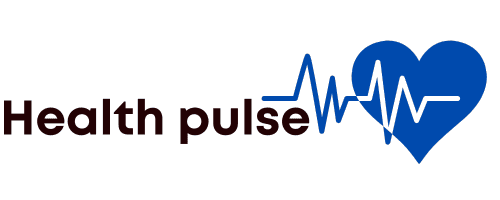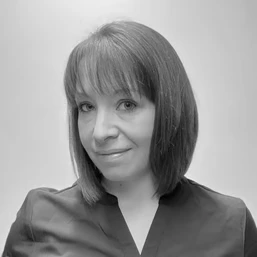Psychotherapy is often called talk therapy. Psychotherapists help you deal with emotional issues so you can function better and increase your sense of well-being. Sessions are usually once per week for up to 60 minutes. It can be for several sessions up to months or years. Both the psychotherapist and you need to work together. Confidentiality is critical.
Key takeaways:
- There are many forms of alternative therapies for depression.
- Their processes and goals are different.
- Many of these services can be provided on an outpatient basis, but if depression is severe enough, inpatient may be required.
Seventy-five percent of people who enter psychotherapy show some benefit and links to positive changes in the brain and body.
There are different types of psychotherapy including cognitive behavioral therapy (CBT), interpersonal therapy (IPT), dialectical behavioral therapy, psychodynamic therapy, psychoanalysis, and supportive therapy.
Cognitive behavioral therapy
Cognitive behavioral therapy focuses on unhelpful or faulty ways of behaving and thinking.
It is believed that people with depressive thoughts and behaviors can learn to cope better by learning to recognize their distortions in thinking that are creating problems and learn to reevaluate them. They learn to problem solve and replace these faulty thoughts and behaviors with those that are more accurate and functional.
In CBT, patients are taught to become their own therapists. They often practice these new skills in the real world with exercises outside of their sessions. CBT therapists emphasize what is happening in the person’s current life, rather than the patient’s past and what has led up to their problems. Some amount of information about the patient’s history is required, but the focus is primarily on advancing forward by managing their life in a more effective way.
Interpersonal therapy
Interpersonal therapy deems that depression frequently follows an alarming change in a person’s interpersonal environment, such as a struggle with a significant other, trouble with a coworker, the ending or beginning of a marriage or troubles relating to other people. The patient becomes depressed and their interpersonal functioning becomes weakened.
IPT can help people learn healthy ways to communicate and express emotions and build how they relate successfully to others. The patient’s task in therapy is to resolve the troublesome life events and strengthen social skills, solve their life problems, and organize their life. Once resolving these disturbing life events, their depressive symptoms should be lifted. The IPT must draw out an “interpersonal inventory”, a review of the person’s patterns in relationships, capacity for closeness, and particularly an assessment of present relationships.
Dialectical behavior therapy
Dialectical behavior therapy is a form of CBT that is used to treat people with longstanding suicidal thoughts and border personality disorder.
It is designed to combine treatment that is focused on acceptance of the patient and to assist the patient to accept themselves, their feelings, beliefs, the world, and others. DBT therapists strive to continually balance and synthesize acceptance and change-oriented strategies. It instructs people in new skills to take responsibility to change unhealthy and troublesome behavior.
It is usually done in both an individual and group format. Skills such as mindfulness, distress tolerance, emotional regulation, and interpersonal effectiveness are DBT skills. Classes meet for several hours and for 24 weeks. A group leader teaches a skill for the patients to practice at home. One-to-one therapy works on promoting patient motivation and helping patients to apply skills to specific events and challenges in their life. Phone coaching is also available in between.
Psychodynamic therapy
Psychodynamic therapy involves the interpretation of processes of a mental and emotional nature rather than behavioral.
Psychodynamic therapy attributes these to childhood experiences and repeated thoughts and emotions that have not risen to consciousness. A patient works with the therapist to improve awareness of self and to change old patterns so they can more completely take charge of their life. The client identifies important pieces of who they are and rearranges them into a more positive and functional sense of self. Sessions usually last one hour in length and occur one time per week.
Psychoanalysis is a more concentrated form of psychodynamic therapy. Sessions are usually run three or more times a week.
Supportive therapy
Supportive therapy relies on encouragement and guidance to assist patients to develop their own resources.
Self-esteem, coping mechanisms, and social and community functioning are strengthened. Supportive psychotherapy assists patients to manage issues related to their depression, which in turn affects the rest of their life.
Recreation therapy
Recreational therapy includes music therapy, art therapy, leisure activities, physical activity, drama, and dance, all of which have shown to decrease symptoms of depression by increasing endorphins in the brain. It has been shown to increase self-esteem and self-confidence. Recreational therapy provides opportunities to socialize with other people in positive ways, which can curb feelings of loneliness. Often recreation therapy is provided in a group format.
Occupational therapy
Occupational therapy (OT) is often used to treat depression.
OT teaches strategies to help with the fatigue from depression, which may include relaxation, prioritization, and pacing. The therapist may help the patient structure their day to ensure they are as fulfilling as possible. They may build a patient’s self-esteem and confidence by engagement in high success activities.
The OT might provide modifications to the patient’s routine, role or environment to enable the patient to function and return to self-care, homemaking and work. Finally, they may help the client set small, achievable, and realistic goals to improve motivation.
Seventy-five percent of people who enter psychotherapy show some benefit and links to positive changes in the brain and body. If you are suffering from depression, speak to your primary healthcare provider about making a connection to a psychotherapist or other mental health specialist.
Resources:
- American Psychiatric Association. What is Psychotherapy?
- Clinical Practice Guideline for the Treatment of Posttraumatic Stress Disorder (PTSD). What is Cognitive Behavioral Therapy?
- NIH. Interpersonal psychotherapy: principles and applications.
- NIH. Dialectical Behavior Therapy.
- PositivePsychology. What is Psychodynamic Therapy? 5 Tools & Techniques.






